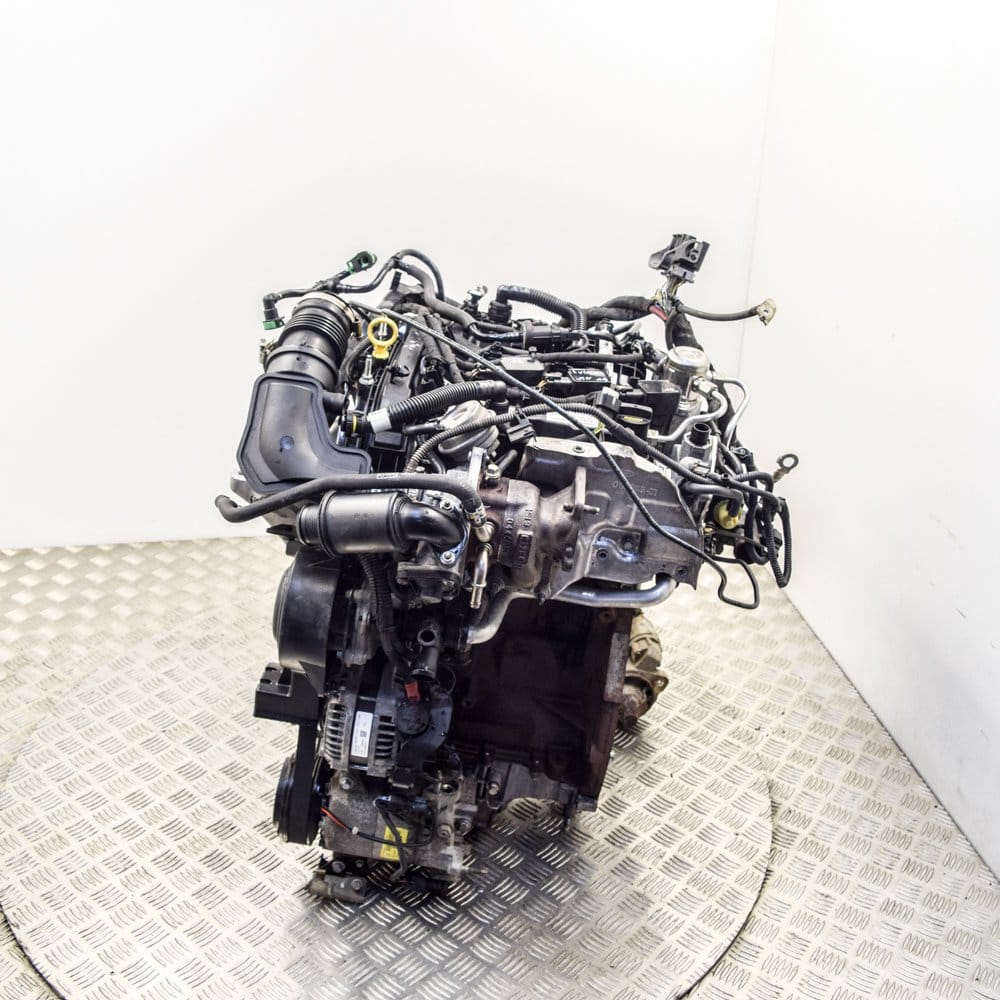Top Ford Fiesta Engine Repairs to Avoid Costly Damage
Wiki Article
Unlocking the Power of Engines: A Comprehensive Overview to Performance and Efficiency
Recognizing the detailed technicians of engines is essential for both performance fanatics and everyday vehicle drivers. The answers may redefine our strategy to engine performance and efficiency in means that are both informing and important.Recognizing Engine Fundamentals
What makes up the fundamental auto mechanics of an engine? At its core, an engine is a device developed to convert fuel into mechanical power with a series of regulated explosions or combustion processes.The crankshaft then changes this direct movement right into rotational energy, which ultimately powers the lorry. The camshaft controls the opening and closing of the shutoffs, controling the intake of air and fuel and the expulsion of exhaust gases. In addition, the engine counts on a carefully calibrated fuel-air combination, ignition system, and cooling down system to make sure ideal performance and efficiency.
Comprehending engine fundamentals also involves identifying the significance of engine cycles, such as the four-stroke cycle, that includes intake, power, exhaust, and compression strokes. Each stage is important in making certain the engine functions smoothly and efficiently. Proficiency of these basic mechanics prepares for exploring more intricate engine characteristics and performance metrics, crucial for maximizing both power result and performance.
Key Performance Metrics
Secret performance metrics are vital for evaluating an engine's performance and power output, giving important insights for both customers and makers. These metrics serve as criteria for engine performance, allowing for notified decisions in manufacturing, investing in, and design.Among the main metrics is horsepower, which evaluates the engine's ability to do job over time. Torque, gauged in pound-feet, is one more essential statistics that suggests the engine's rotational pressure, straight impacting velocity and towing ability. Gas performance, generally gauged in miles per gallon (MPG) or liters per 100 kilometers (L/100km), analyzes just how efficiently the engine converts fuel into movement, influencing functional expenses and environmental factors to consider.
Furthermore, thermal efficiency steps how well an engine transforms fuel power right into beneficial job, revealing insights right into power losses mainly with warm. Exhaust levels, consisting of CO2 and NOx, are additionally important, reflecting the engine's ecological effect and compliance with regulative requirements.

Tuning Methods for Performance
Tuning strategies play a substantial duty in boosting engine efficiency by optimizing performance metrics identified in earlier discussions (ford fiesta engine). Get More Info Different approaches exist to fine-tune an engine, each adding to improved gas economy and minimized exhaustsOne efficient method is adjusting the air-fuel ratio, ensuring the engine operates within the ideal burning routine. A leaner mix can enhance fuel efficiency, but it should be stabilized to stop misfires or engine knock. Additionally, reprogramming the engine management system can recalibrate specifications such as ignition timing, which additionally enhances efficiency while maintaining you can try this out power output.
Another essential approach includes changing the intake and exhaust systems. Upgrading to high-performance air filters and exhaust headers can lower back pressure, facilitating much better airflow. This allows the engine to breathe even more openly, resulting in improved combustion effectiveness.
Moreover, the application of sophisticated tuning tools, like dyno testing, offers specific information that enables targeted modifications. Routinely keeping track of these performance metrics ensures that tuning initiatives produce the wanted effectiveness outcomes. Jointly, these methods not only bolster engine efficiency but additionally add to lasting sustainability in engine operations.
Maintenance for Ideal Performance
Routine engine upkeep is vital for attaining optimal performance and long life. A well-kept engine not only runs effectively yet additionally decreases the danger of costly repairs and failures. Trick components needing regular attention consist of oil, filters, belts, and ignition system.Transforming the engine oil at advised intervals is vital, as oil lubricates relocating parts and avoids overheating. In a similar way, changing oil and air filters guarantees that pollutants do not impair engine function. Overlooking these parts can cause reduced performance and possible engine damages.
Additionally, examining and changing used belts and hoses is crucial to stop abrupt failings. Timing belts, particularly, ought to be replaced according to the producer's schedule to stay clear of devastating engine damage.
Ignition system should additionally be inspected and replaced as required, considering that they play a crucial role in ignition and fuel effectiveness.
Future Patterns in Engine Modern Technology
Welcoming advancements in modern technology, the future of engine layout is positioned to revolutionize efficiency and effectiveness throughout numerous applications. Hybrid and totally electric powertrains are becoming significantly conventional, using decreased exhausts and enhanced gas efficiency.Moreover, technologies in products science are leading to lighter, stronger components that improve engine performance while reducing power usage. Advanced manufacturing methods, such as 3D printing, permit the production of complex geometries that improve air flow and thermal management, therefore optimizing combustion procedures.
In addition, the combination of expert system and artificial intelligence is set to transform engine diagnostics and efficiency adjusting. These technologies can examine large quantities of data in real time, enabling anticipating upkeep and tailored performance improvements.
Conclusion
In final thought, opening the power of engines needs a thorough understanding of their mechanics and performance metrics. Carrying out efficient tuning methods and adhering to routine discover here upkeep practices dramatically boost engine abilities.In addition, the engine depends on a thoroughly adjusted fuel-air mixture, ignition system, and cooling system to ensure ideal performance and effectiveness.
Recognizing engine essentials likewise includes recognizing the value of engine cycles, such as the four-stroke cycle, which includes consumption, exhaust, power, and compression strokes. Mastery of these essential auto mechanics lays the foundation for discovering much more intricate engine dynamics and efficiency metrics, crucial for enhancing both power result and effectiveness.

Accepting improvements in technology, the future of engine design is positioned to transform efficiency and performance throughout different applications.
Report this wiki page